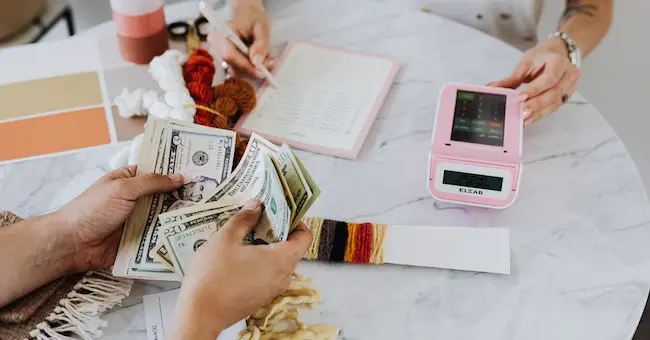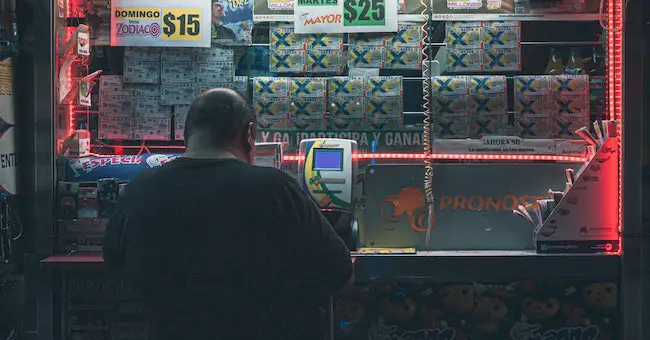Does Buying More Lottery Tickets Increase Your Odds?
Dr. Mark Glickman, a professor of statistics at Harvard, claims that just one method has been scientifically shown to increase lottery odds: He previously told CNBC Make It that purchasing additional tickets for each game will only increase your chances.
The Mathematics Behind Lottery Odds
Lotteries have been favored as gambling for a long time, with the promise of life-changing money for a tiny investment. But beneath the glitz of instant riches is an actual mathematical fact that is often not noticed by many hopeful players.
The Odds of Winning
The chances of winning a lottery are usually expressed as “1 in X.” That means for each X combination, there’s just one winning combo. For instance, if your odds of winning are one out of 10 million, it means that of the 10,000 possible combinations, only one is likely to win the jackpot.
The odds of winning a lottery vary wildly depending on the specific game rules. Factors that affect odds include the number of combinations that can be made, the numbers that have to be selected, and whether bonus numbers are being used. Generally, the larger the number of possible numbers and the greater the number of numbers to be selected, the greater the chances of winning.
Buying More Tickets
A common question is whether purchasing more lottery tickets improves your odds of winning. The answer is simple: purchasing more lottery tickets increases your chances of winning. However, the gain is not significant.
Imagine that you buy several tickets with different numbers. In that scenario, you’re playing multiple games independently. Each ticket increases your odds of winning since you are more likely to have your numbers match the winning combination. But it is important to remember that the rise in odds isn’t proportional to the number of tickets you purchase.
Although buying more tickets can increase your chances of winning to a certain degree, it’s important to keep the overall odds in perspective. Even with many tickets, however, the odds of winning the lottery’s jackpot remain extremely low. Buying several tickets can quickly increase the cost, making it a costly method with no guarantee of success.
The Illusion of Increased Odds
Lotteries have long caught the attention of those looking to make money. The lure of winning huge sums of money for an investment of just a few dollars is attractive. This is why many people buy several lottery tickets, hoping this will increase their chances of winning. But behind this seemingly rational method lies a deceit that can fool even the most intelligent minds.
The Fallacy of Buying More Tickets
The skepticism behind buying more tickets stems from the notion that the likelihood of winning is directly related to the number of tickets you purchase. While buying additional tickets can increase the odds of winning you can choose from when you draw the numbers, the impact on your chances of winning is often underestimated.
Take a simple example: the lottery requires five numbers out of 40. The chances of winning the jackpot on one ticket are 1 out of 658,008. Now imagine that you choose to buy 100 tickets, assuming that your odds have increased. However, the chances of winning those 100 tickets are only 1 out of 6,580. While the number of tickets has increased, the probability of winning remains incredibly low.
The Costly Gamble
More ticket purchases might quickly turn into an expensive gamble. Multiple tickets can be expensive, frequently costing more than the potential jackpot, and can add up quickly. Many people concentrate on the potentially higher chances rather than the financial repercussions.
Before buying more lottery tickets, it’s important to calculate the potential ROI. By dividing the probability of winning by the jackpot amount, one can calculate the expected value of lottery tickets. It is a poor financial decision if the cost of purchasing extra tickets is greater than the anticipated value.
The Psychology of Lottery Players
Lotteries have a distinct appeal that transcends borders and different cultures. They provide the enticing chance of instant wealth that enthralls the hopes of most people worldwide. What drives people to take part in lotteries? What drives them to buy tickets despite the slim chance of winning? The psychology of lottery players provides fascinating insights into the root factors that affect their behavior and decisions.
Dreaming of a Better Life
The desire for an improved life is an effective psychological motivation for those who play the lottery. Lotteries promise instant wealth and financial freedom, which can be a source of inspiration for people’s most cherished desires and aspirations. The chance to escape financial difficulties, pay off debts, purchase luxurious items, or discover new opportunities provides an inspiring image of a brighter future.
The psychological effects of this fantasy are multiple. It allows people to feel hopeful and optimistic, providing an escape from the realities of their present situation. It inspires dreams of a life full of possibilities and creates excitement and anticipation. The desire for a better life motivates lottery participation, even if the rational mind realizes the small chance of winning.
Social And Emotional Factors
It’s not just self-interest that drives people to play the lottery. The emotional and social aspects are also major factors. Lotteries usually create a collective excitement and anticipation, particularly during huge jackpots or media coverage. The possibility of winning with friends, family, or colleagues through syndicates or office pools adds an extra social aspect to the experience, encouraging friendship and sharing the excitement.
Additionally, the emotional repercussions of anticipation and hope can be effective motivational factors. For some people, purchasing lottery tickets provides the chance to escape for a moment and a sense of fantasy. The anticipation of winning and the chance of winning trigger dopamine release. Dopamine is the brain’s “feel-good” chemical, which can trigger feelings of pleasure and satisfaction. The emotional component of playing a lottery improves the experience overall and encourages the desire to keep playing.
The Odds Of Winning Different Lotteries
Lotteries have been a well-loved type of gambling worldwide that entices gamblers by promising life-changing jackpots. However, beneath the lure of instant riches lies the most important factor often overlooked: the odds of winning.
Lotto Games
Lotto games are among the most well-known and played lotteries in the world. The majority of these games involve choosing the number of numbers from a pool that has been predetermined. The chances of winning the lotto game are based on factors like the number of combinations that can be made and the numbers that can be selected.
For instance, a well-known lotto game could require players to choose six numbers from pool 49. The chances of winning a jackpot could be calculated by multiplying the total number of possible combinations (calculated by combinatorial mathematics) by the number of winning results (one winning combination). In this instance, the odds could be as low as 1 out of 13,983,816.
It is vital to know that the chances of winning lottery games could differ depending on the rules specific to each game and their variations. Certain lotto games could include bonus numbers or draws that can impact the overall chances of winning.
Powerball And Mega Millions
Powerball and Mega Millions are two of the most well-known and frequently played lottery games in the United States. These games are known for their massive jackpots, usually exceeding hundreds of millions or even billions. However, the chances of winning these games are small due to the many combinations.
In Powerball, the players choose five numbers from a pool of 69 and a second Powerball number from another 26 numbers. The chances of winning the Powerball jackpot are 1 in 292,201,338. Like the Powerball jackpot, Mega Millions follows a similar structure, with players choosing five numbers from a 70 numbers and a Mega Ball number from a pool of 25. The chances of claiming the Mega Millions jackpot are approximately 1 in 302,575,350. The Mega Millions jackpot is approximately 1 out of 302,575,350.
The huge chances of winning at these games indicate the jackpots that accumulate because of regular rollovers in which nobody wins the biggest prize. Although the chances of winning the jackpot could be low, these games still provide smaller, secondary prizes with greater chances of winning.
FAQ’s
Does buying more lottery tickets improve your chances of winning?
In theory, buying more lottery tickets increases the number of possible combinations you have entered into the draw, which technically improves your chances of winning. However, the increase in odds is relatively small and proportional to the number of tickets purchased.
Are your odds of winning the lottery directly proportional to the number of tickets you buy?
Yes, your odds of winning the lottery are directly proportional to the number of tickets you buy. For example, if you buy twice as many tickets, your odds of winning will be approximately twice as high. However, it’s important to note that the increase in odds is still relatively small compared to the overall odds of winning the lottery.
Does buying more tickets guarantee a win?
No, buying more lottery tickets does not guarantee a win. While your chances of winning increase with more tickets, there is still a significant probability that you will not win. Lotteries are based on random chance, and even with a large number of tickets, the odds of winning a substantial prize remain low.
Is buying more lottery tickets a good investment strategy?
No, buying more lottery tickets is generally not a good investment strategy. Lotteries are designed to generate revenue for the organizers, and the odds of winning a significant prize are usually very low. From a financial standpoint, the cost of purchasing numerous tickets often outweighs the potential winnings.
Are there any drawbacks to buying more lottery tickets?
The main drawback of buying more lottery tickets is the potential financial loss. If you spend a significant amount of money on tickets without winning a substantial prize, you may end up losing more money than you invested. It’s important to set a budget and gamble responsibly.
Are there alternative strategies for improving your chances of winning the lottery?
While there is no guaranteed way to win the lottery, some people choose to participate in lottery pools or syndicates. By joining forces with a group of people and pooling their money, they can collectively purchase a larger number of tickets, increasing their overall chances of winning. However, winnings would be shared among the group.


















